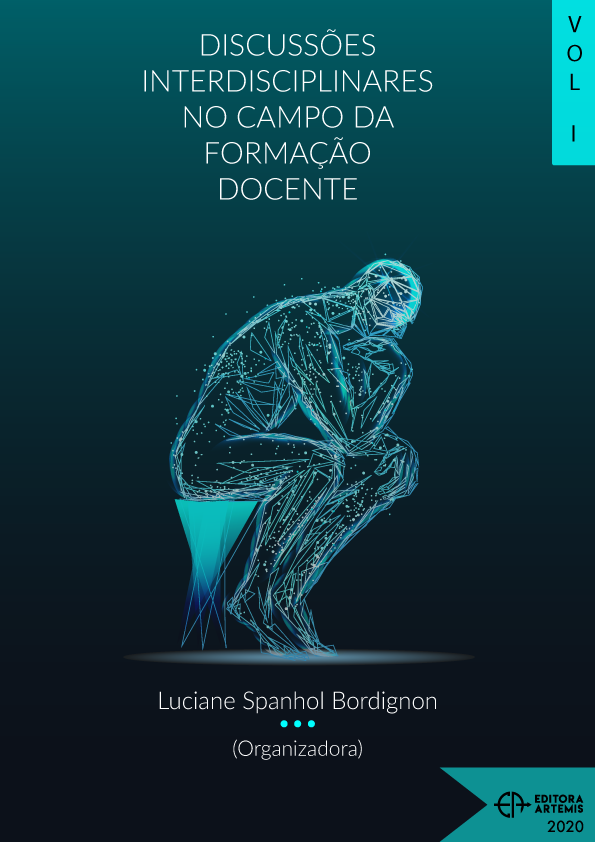
REPRESENTAÇÕES DOS FORMANDOS DO CURSO DE LICENCIATURA EM CIÊNCIAS BIOLÓGICAS DA UNIVERSIDADE DO ESTADO DA BAHIA ACERCA DE SUA FORMAÇÃO INICIAL
A problematização das questões inerentes à formação de professores vem a cada dia conquistando espaço no cenário científico nacional, sobretudo pelo empenho dos grupos de pesquisa nos Programas de Pós-graduação em Educação no Brasil, ora compartilhados em eventos do gênero ou disseminados em publicações da área. Outro campo de estudo que notavelmente vem ascendendo é a pesquisa sobre os saberes docentes. Diante deste cenário, este trabalho propôs fazer uma análise das representações dos formandos da turma 2014.1 do curso de Licenciatura Plena em Ciências Biológicas do Departamento de Ciências Humanas (DCH) Campus IX na cidade de Barreiras da Universidade do Estado da Bahia (UNEB) acerca de sua formação docente e correlacionado a isso diagnosticar a apreensão do saber inerente à profissão docente, quanto aos saberes pedagógicos e específicos da área. O universo da pesquisa foi composto por 16 alunos que estavam cursando o último componente curricular pedagógico (EDC005) Estágio Supervisionado II no semestre de 2017.2. Como metodologia utilizou-se uma abordagem qualitativa para a análise do conteúdo tendo como eixo orientador a aplicação de um questionário composto por 21 perguntas. Ao avaliar as respostas verificou-se que a maioria dos pesquisados optou pelo curso de Licenciatura em Ciências Biológicas em razão da afinidade com a disciplina de Biologia. Quanto à avaliação da eficiência do currículo do curso, a maioria dos formandos não se dizem satisfeitos. Por outro lado, quanto aos conhecimentos de conteúdos específicos e pedagógicos, os entrevistados destacaram não serem suficientes para o exercício da docência. Para aproximadamente, dois terços dos formandos poucas foram às disciplinas que utilizaram metodologias diferenciadas para trabalhar os conteúdos de Biologia. Percebeu-se que os formandos não estão satisfeitos com o curso devido à desarticulação entre as disciplinas especificas e pedagógicas o que para eles reverbera na desvalorização da licenciatura dentro do próprio curso.
REPRESENTAÇÕES DOS FORMANDOS DO CURSO DE LICENCIATURA EM CIÊNCIAS BIOLÓGICAS DA UNIVERSIDADE DO ESTADO DA BAHIA ACERCA DE SUA FORMAÇÃO INICIAL
-
DOI: 10.37572/EdArt_0331106205
-
Palavras-chave: Formação de professores; Saberes docentes; Profissão docente; Estágio Supervisionado.
-
Keywords: Teacher training; Teaching knowledge; Teaching profession; Supervised internship.
-
Abstract:
The problematization of the issues inherent to teacher training has been gaining space on the national scientific scene, especially due to the efforts of research groups in the Postgraduate Programs in Education in Brazil, which are sometimes shared in events of this kind or disseminated in publications in the area. Another field of study that has been rising remarkably is research on teaching knowledge. Given this scenario, this work proposed to make an analysis of the representations of the graduates of the 2014.1 class of the major in Biological Sciences of the Department of Human Sciences (DCH) Campus IX in the city of Barreiras of the State University of Bahia (UNEB) about its teacher education and correlated to that diagnose the apprehension of the knowledge inherent to the teaching profession, regarding the pedagogical and specific knowledge of the area. The research universe consisted of 16 students who were taking the last pedagogical curricular component (EDC005) Supervised Internship II in the semester 2017.2. As a methodology, a qualitative approach was used for the analysis of the content having as a guiding axis the application of a questionnaire composed of 21 questions. When evaluating the responses, it was found that the majority of those surveyed opted for the Biological Sciences course because of their affinity with the discipline of Biology. As for the evaluation of the efficiency of the course curriculum, most trainees are not satisfied. On the other hand, regarding the knowledge of specific and pedagogical content, the interviewees highlighted that they are not sufficient for teaching. For approximately two-thirds of the trainees, few went to disciplines that used different methodologies to work on the contents of Biology. It was noticed that the trainees are not satisfied with the course due to the disarticulation between the specific and pedagogical subjects, which for them reverberates in the devaluation of the degree within the course itself.
-
Número de páginas: 13
- FABIO DE OLIVEIRA
- Raquel Lima Besnosik

